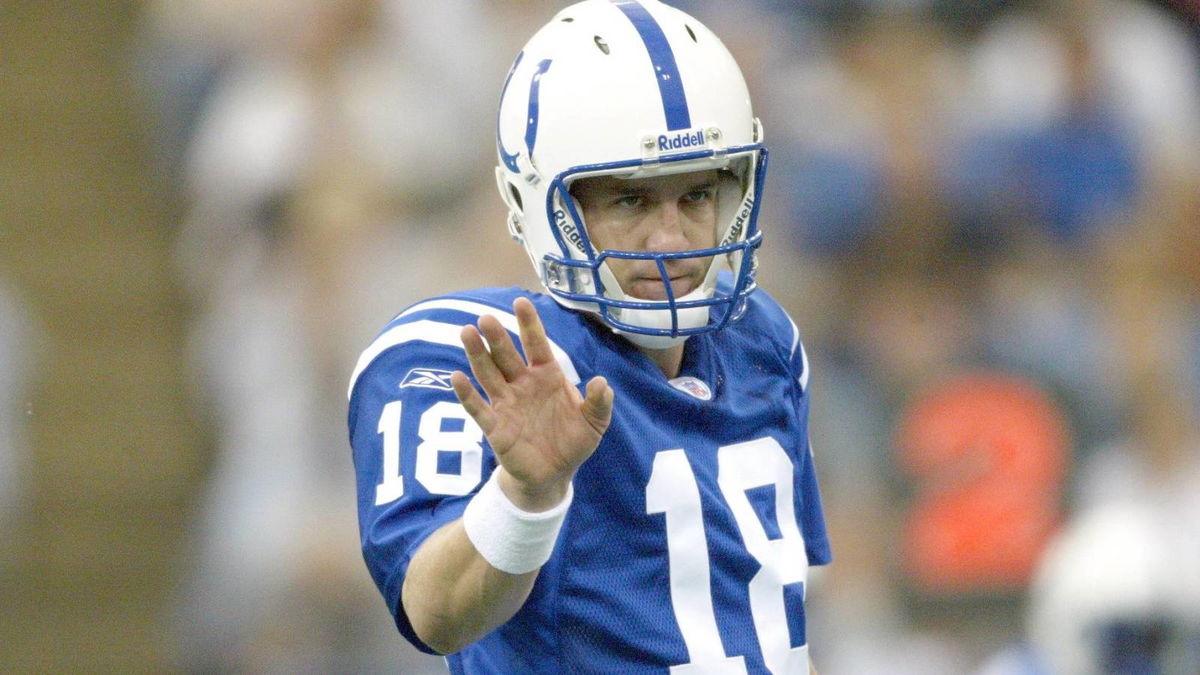
Getty
INDIANAPOLIS, IN – SEPTEMBER 14: Peyton Manning #18 of the Indianapolis Colts in action during a game against the Tennessee Titans on September 14, 2003 at Lucas Oil Stadium in Indianapolis, Indiana. (Photo by Sporting News via Getty Images via Getty Images)

Getty
INDIANAPOLIS, IN – SEPTEMBER 14: Peyton Manning #18 of the Indianapolis Colts in action during a game against the Tennessee Titans on September 14, 2003 at Lucas Oil Stadium in Indianapolis, Indiana. (Photo by Sporting News via Getty Images via Getty Images)
It was the last regular-season game of 2009 for the playoff-bound 14-2 Indianapolis Colts – a meaningless snow game – against the 6-10 Buffalo Bills. But even though the first-year head coach Jim Caldwell had all the reasons to keep his starters out, his star quarterback, Peyton Manning, wanted to be in the game for one reason: to give his teammates Reggie Wayne and Dallas Clark a shot at completing their personal goals. However, little did he know what playing just one quarter would mean for his season.
Watch What’s Trending Now!
“I basically sacrificed my GPA for the group project,” Manning wrote on his Instagram account while sharing a clip of what exactly went down 16 years ago.
In the game, Manning wasn’t necessarily trying to push the ball downfield. Instead, he threw screens, quick outs, whatever it took to pad the totals for Wayne and Clark, who needed to complete 100 catches to get their financial incentives. But with the two well-guarded barely three minutes into the game, at 12:32 in the first quarter, Manning threw an in-route pass to Jacob Tamme.
ADVERTISEMENT
However, Tamme slipped on the snowy turf, and the ball went straight to the Bills’ defensive back, Cary Harris, at IND-48. The latter returned the ball for 7 yards to hurt the Colts, causing Manning’s only interception in that game. But the impact of that pick was much worse for the QB.
After two consecutive years of not achieving a passer rating of over 98 percent, The Sheriff was back to a 100-plus rating that season. If he hadn’t played that last series, he would’ve ended the season that way. However, when he went to the sidelines, his coach told him the consequence of that interception, and the comically upset QB then told his teammate on the bench:
“My rating is below 100. It’s 99.9, because of the pick,” he said.
ADVERTISEMENT
View this post on Instagram
Manning and the starters were done by the beginning of the second quarter, but Wayne and Clark stayed in long enough to hit their milestones. And they did.
ADVERTISEMENT
With seven receptions on eight targets for 52 yards, Clark became just the second tight end in NFL history to reach 100 catches in a season. He joined Tony Gonzalez in the feat.
Wide receiver Wayne reached 100 for the second time in his career with five of seven catches for 21 yards. He had previously caught 104 passes in 2007, when he also led the league with 1510 yards.
For the team, however, a franchise-best 11-game road win streak was snapped. They were also vying to be the sixth NFL team to win 15 games in a season, which did not come to fruition.
ADVERTISEMENT
Of course, it wasn’t Manning’s last chance to post an impressive rating with the Colts.
Before missing the 2011 season due to neck surgeries and then being traded to the Denver Broncos, he only played one more year in Indianapolis. He finished his last playing season as a Colt with a 91.9 mark.
In Denver, he produced three of his most successful seasons in just four years. In his first three Broncos years, he threw for 14,863 yards, 131 touchdowns, and 36 interceptions, with passer ratings of 105.8, 115.1, and 101.5, respectively.
ADVERTISEMENT
As great as the numbers were, stories like this one remind you why he was just as respected in the locker room as he was feared on the field.
Manning’s mindset as a team leader
There’s plenty you can say about Peyton Manning, the quarterback on the field. However, what gets lost sometimes is how he reached the point where, despite not being athletic enough, he became the key to taking down or building up the Colts.
ADVERTISEMENT
It all boiled down to one word: preparation.
During the week, Manning tirelessly prepared for the games, watching films day in and day out to understand how his opponents operated. On the field, he became the engine of everything.
Top Stories
Sean McDermott Announces Bad News for Josh Allen as Bills QB Rings Alarm Bells
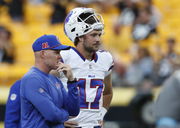
Troy Aikman Makes Decision on NFL Job as Cowboys Legend Announces Stance on ESPN Exit
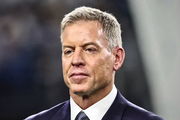
Baltimore Ravens Make Kevin Stefanski Announcement After Firing John Harbaugh for Lamar Jackson Fallout
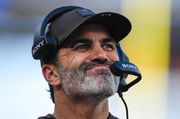
Tom Brady’s Commitment to Raiders Questioned After Mark Davis Confirms Minority Owner’s Role
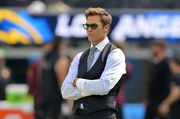
Bill Simmons Lashes Out at Packers HC Matt LaFleur After ‘Worst Playoff Coaching Performance This Century’ vs Bears

He would tweak the commands at the line of scrimmage using code words that only made sense to the ten guys hearing him. His football IQ would kick in just when the plays began to make the Colts’ offense one of the most sophisticated ones in the league. All the work ensured his team was in the best possible position to win.
ADVERTISEMENT
As he once said about Clark when the latter finally entered the Colts Ring of Honor, Jim, Bill, and Tony had a criterion for the kind of players they wanted to bring in: do they truly love football, are they unselfish, and is it more about the team than the individual? Interestingly, Manning, too, checked all the boxes.
Many of his teammates, whether from the Colts or the Broncos, knew that the passion for football and the team’s success kept him away from the outside world. In fact, many would agree that he barely had any social circle.
ADVERTISEMENT
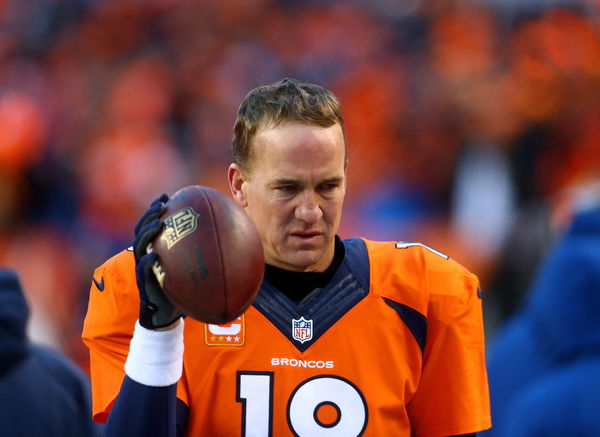
NFL, American Football Herren, USA Divisional Round-San Diego Chargers at Denver Broncos Jan 12, 2014 Denver, CO, USA Denver Broncos quarterback Peyton Manning 18 against the San Diego Chargers during the 2013 AFC divisional playoff football game at Sports Authority Field at Mile High. Denver CO USA, EDITORIAL USE ONLY PUBLICATIONxINxGERxSUIxAUTxONLY Copyright: xMarkxJ.xRebilasx 7684704
Think back to Denver’s Super Bowl season in 2015. Those final weeks were messy and uncertain. Manning was dealing with a painful foot injury that sidelined him for six games, and the offense wobbled without him. The truth is, the issues had started even before he was sidelined. But he never used it as an excuse.
“If you look back on it now, I have a hard time saying that’s why I played badly. Could that be the reason? I guess it always could be. But to me, that’s an easy way out. That’s kind of an easy line to say after the fact. So I was very honest with ‘Greek’ and Coach Kubiak that I felt like I could go. I wanted to go, I wanted to be out there for the team,” Manning said.
Ironically, the same could be said for his nemesis, Tom Brady, who has examples lined up from when he played through injuries as he knew what his absence would mean for his teams.
Manning’s importance to the team was louder than ever in 2011, when his neck surgeries kept him out, and the Colts spiraled to a 2–14 record. But ask anyone who shared a huddle with him what he would do for the team and his teammates.
“I, along with a lot of other people, owe a debt of gratitude to Peyton Manning,” former Colts punter Hunter Smith once put it in a way that still rings true across that entire era.
ADVERTISEMENT
ADVERTISEMENT
ADVERTISEMENT

